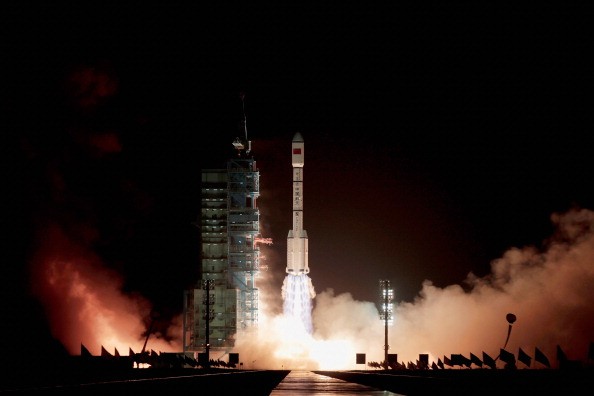China on Thursday sent the world's first cold atom clock into space with the Tiangong-2 space laboratory.
The cylinder-shaped object, which bears no resemblance to any ordinary timepiece, is one of the most advanced timepieces ever created, according to China's state-owned Xinhua News Agency.
"This clock is so accurate that it should not lose one second in 30 to 300 million years in space," said Liu Liang, professor and director of the Key Laboratory of Quantum Optics, Shanghai Institute of Optics and Fine Mechanics, Chinese Academy of Sciences.
The cold atom clock is based on atomic physics, but unlike most atomic clocks it relies on more advanced "cold atom" technology which allows for ultra-precise timekeeping.
The clock even exceeds the accuracy of the hydrogen atomic clock, which loses approximately one second for millions of years, Liu said.
Scientists attribute the clock's precision to the microgravity of space as well as the coldness of the atoms the clock uses.
Under microgravity conditions, the atoms of the clock are guided by laser to move in a straight line. By observing their movement, researchers are able to record a more precise atomic clock signal than under the gravity conditions on Earth.
In addition, the laser is specially designed to helps eliminate the influence of atomic thermal motion on the clock's performance.
"Though molecules and atoms can't be seen in a room, they are actually moving at high-speed, and the speed is equivalent to temperature," Liu explained. "We use laser cooling technology to slow down the atoms to a temperature that a refrigerator could never reach, so they nearly stay still."
"By observing the almost static atoms we make our measurements more precise," he added.
Scientists believe that sending such a clock to space will help set a time standard to synchronize other atomic clocks in space more precisely.
"A more accurate clock system in space will benefit us on Earth," Liu said, citing possible substantial improvements in navigation and positioning accuracy as examples.
The development of cold atom technology could also pave the way for many experiments, including those on deep space navigation and positioning, dark matter probes, and gravitational wave exploration.
"A lot of research is based on our measurement of time and space. If we could detect subtle changes in time and space, we could make discoveries beyond the range of existing technology," Liu said.
"In the future, there will be more accurate clocks than this cold atom clock and our ultimate goal is to make a clock that will never be a second fast or slow over the life of the universe."



























